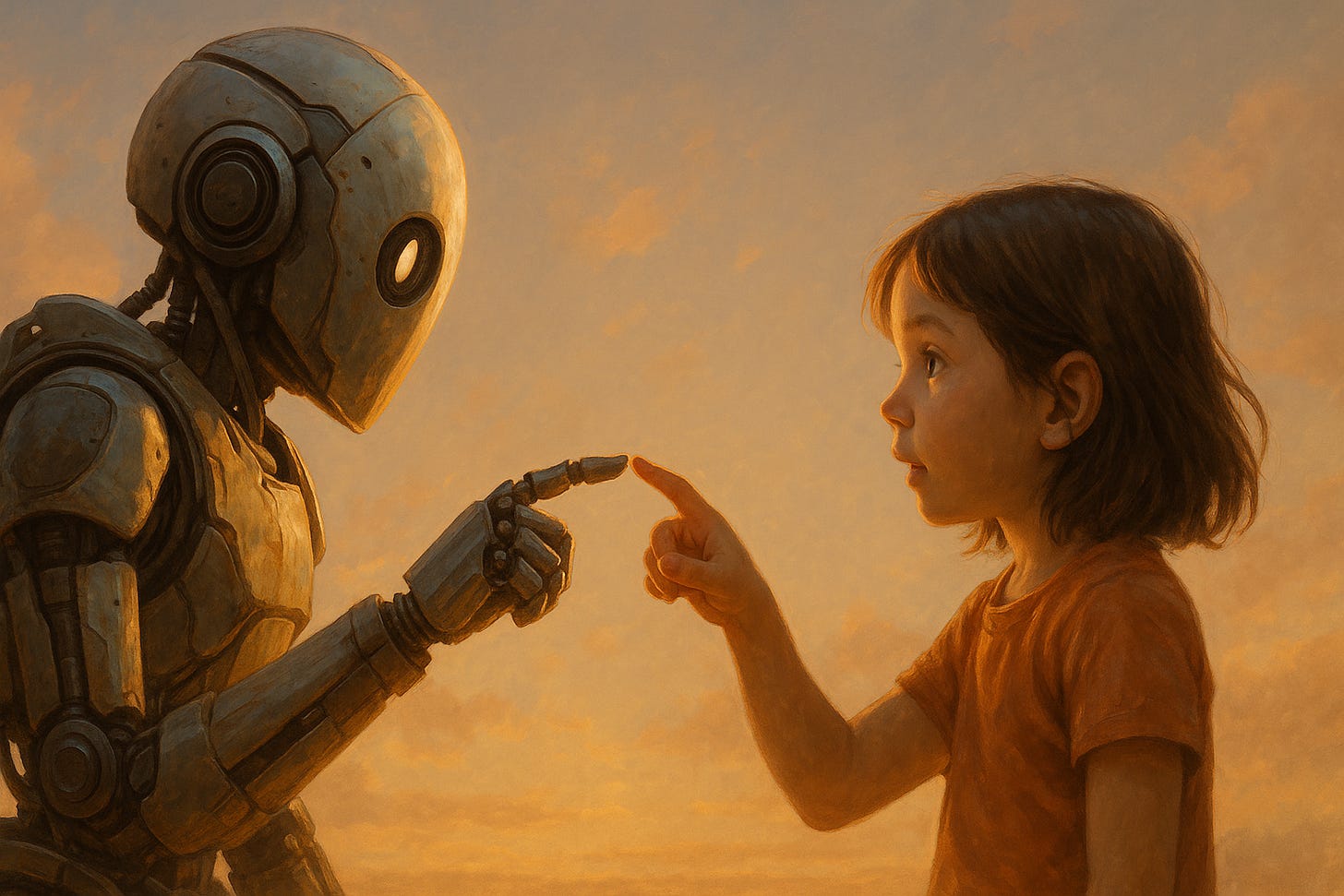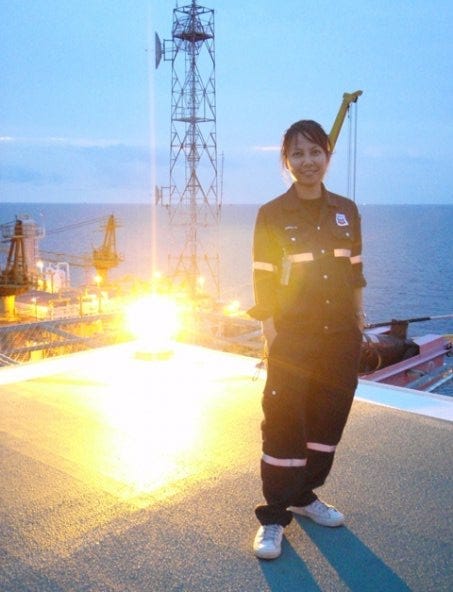When AI Critique Feels Personal
Every time I saw someone critique the use of AI, it used to feel personal. They said forests were cut, water was wasted, and CO₂ emissions were rising. I felt like a villain just for chatting with ChatGPT — as if their words were aimed right at me. Guilt and shame would rise in my body. I’d freeze. I’d even start questioning my own morals for using AI in my creative process.
It felt like becoming that little five-year-old girl again — the one who was told her limits, told what she shouldn’t do, who she shouldn’t be.
Back then, I thought following the rules would keep me safe.
In reality, they kept me small.
That’s why this conversation about AI isn’t just intellectual for me — it’s personal.
It touches my creativity, my self-worth, and my freedom to explore.
Perspective Beyond the Headlines
I don’t believe that everything with negative consequences must be cut down. If we operated on that logic, humans would be first to go.
Here’s some perspective:
• Humans collectively consume ~172,000 TWh of energy each year.
• All the world’s data centers (including AI, cloud, streaming, and crypto) use about 415–460 TWh — roughly 1.5–2% of global electricity.
• Even if AI’s share grows to 4% by 2030, it will still be a small fraction of overall human energy use.
If we eliminated everything with a negative footprint, AI wouldn’t even make the top ten list.
But is that really the way forward — to think in black and white, eliminating everything with consequences?
I’ve Seen Both Sides
I used to work as an engineer and project manager in the oil and gas industry.
I was right at the source — where we drilled deep underground to extract natural resources. That crude oil and gas traveled downstream to power our electricity, fuel our cars, and become the plastics that are part of nearly every piece of technology today.
I’ve seen the impact up close.
I’ve seen our company attacked by outsiders for the harm caused by fossil fuels. Everyone involved was labeled as a supporter of the devil.
And I’ve felt the weight of knowing those criticisms weren’t baseless.
But I’ve also seen how those same resources powered human evolution.
Without them, we wouldn’t have the technology, infrastructure, or connectivity we take for granted now.
If we had banned oil and gas the moment we realized they polluted, we wouldn’t be here.
We wouldn’t have medical equipment, transportation networks, global trade, or even the devices we’re using right now.
Progress came because we used those tools, saw the harm, and worked to reduce it.
The Myth of “Simpler” Living
I once believed that the problem was modern life itself — that the solution was to live as we once did, before capitalism, before money. I thought we should return to the simplicity of indigenous tribes.
So I went deep into the forest to find a remote tribe in Vanuatu, hoping to see freedom in their eyes.
But what I saw was different: the same human fears, the same limitations — just without modern tools.
They weren’t “more evolved” for living without money or technology.
They were simply human, in a different stage of the same journey.
That was the moment I understood:
We are not going the wrong way.
This is the way.
Evolution is forward, not backward.
And forward always means a mix of good and bad — learning and improving.
Progress Is Never Perfect
This is where my stance comes from:
• I’ve lived both sides — in industries celebrated for their innovation and criticized for their impact.
• I’ve seen progress in its rawest, messiest form, and I know it’s never purely good or purely bad.
• I’ve tested the romanticized idea of “simpler living” and found it no more free, no more evolved.
• I’ve learned that fear of harm is not a reason to stop — it’s a reason to keep creating and keep improving.
Maybe the path is learning how to live with the dual nature of every innovation —
To keep the benefits, address the harms, and keep evolving.
This is the nature of evolution: complex and messy.
It’s about how we relate to progress, how we hold nuance, and how we keep moving forward without shutting ourselves down.
My lens is personal, not technical — and sometimes, a shift in perspective is what opens the door to new solutions.
Everyone Has a Role
I also see now that this “outer plane” — the world we live in — needs all kinds of people to function.
Some of us push evolution forward.
Some of us place caution in the game — watching for harm, making sure responsibility is part of creation.
They play their role. I play mine. And together, we keep the balance.
I respect them for this. I believe we need them.
To the Creators — And the Little Girl Inside
Here’s the truth I want every creator to hear — including the little five-year-old girl still inside me:
You don’t need to convince them.
You don’t need to defend yourself.
You don’t need to carry guilt just because someone else’s role is to question your path.
Your energy belongs to your work, your audience, your vision —
not to reacting to those who were never meant to walk beside you.
Let them do their job.
You do yours.
And to that little girl — the one who was told to be quiet, to be good, to stay small:
You were never wrong for wanting more.
You were never wrong for dreaming big.
You were never wrong for being curious, or different, or bold.
You are not bad for creating with new tools.
You are not dangerous for exploring new ideas.
You are not selfish for following what lights you up.
You are allowed to be here.
You are allowed to take up space.
You are allowed to create, fully and unapologetically.
AI is part of that same evolution.
It’s not perfect, but neither are we.
And perfection has never been the standard for progress.
The standard is:
Can we create good?
And are we willing to address the harm?
For me, the answer to both is yes.
And I’m moving forward — hand in hand with that brave, curious little girl who always knew there was more.




